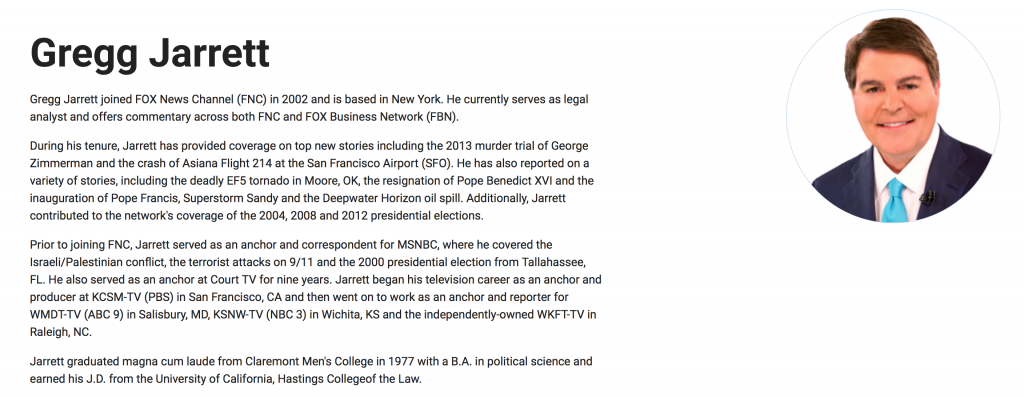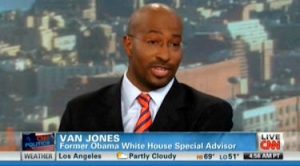UPDATE 3/26 @10:53am ~ Came across this study on what marriage/divorce/child-bearing looks like after 10 years of same-sex marriage in the Netherlands. Being the first nation to do it, they are the closest thing we have to a real-life lab on this matter. Result? It ain’t good if you’re a “marriage equality” advocate. And by the way: If you use that term (“marriage equality”) around me I’ll clock you one. It’s silly & annoying.
Below is a brilliantly delineated path forward from The Wall Street Journal for the Supreme Court to navigate the rocky shoals of the same-sex marriage arguments it will hear next week. It’s kinda dense reading for the non-lawyer (like me!) to fully apprehend, but take your time, and really try to digest the nuance of each argument. It’s worth it.
Now, parenthetically, for what it’s worth, and for those who care and are unfamiliar with my views on the matter, they are this: Civil unions between one human being and one other human being of the same sex, who are unrelated, is fine & dandy with me. If you are lucky enough to find someone to love you through a lifetime, it seems to you should fall down on your knees and thank the Higher Power of your choice that someone is willing to enter into such a magnificent covenant with you – just don’t call it “marriage” – because it’s not. You are absolutely entitled to have all of the legal responsibilities and benefits of marriage – as a matter of law – but in terms of a societal or cultural imprimatur, or stamp of approval, no. Call it something else.
Understand: I will not give you the stink-eye, shun, or otherwise refuse to associate with you. My children have friends who have married same-sex parents whom I regard with very high esteem and extremely warm affection. They are welcome in my home, at my table, and I am glad to have their embrace whenever I see them. Further, I trust them absolutely with the care of my children at their homes. They are lovely, lovely, people.
But it’s not a marriage they have. It’s something else.
So, that’s where I stand, for what it’s worth.
And below, via WSJ, is the best argument I’ve seen yet for the path forward. It’s brilliant. It preserves legal, constitutional integrity while passing no moral judgement whatsoever on same sex unions, all while preserving the individual liberty to live and let live. That’s a pretty neat trick.
Here’s where you could change my mind – sort of: If someday, all 50 states decide that same-sex unions are lawful – literally, having voted them into law – then, and only then, should the Supreme Court step off the balance beam – but I would still withhold labeling them “marriage” for purposes of federal law. The “label” question, it seems to me, should be left to society; via secular and religious consensus.
~~~~~~~~~~~~~~~~~~~~~~~~~~
THE WALL STREET JOURNAL
Michael McConnell: The Constitution and Same-Sex Marriage
By MICHAEL MCCONNELL
For most Americans, the Supreme Court cases being heard on Tuesday and Wednesday next week are about same-sex marriage. But the cases—Hollingsworth v. Perry (the Proposition 8 case from California) and U.S. v. Windsor (the Defense of Marriage Act case)—also are a test of the nation’s democratic and decentralized constitutional structure. These cases thus are not just about marriage. They are about how we reach decisions regarding matters of deep moral significance in our federal republic.
We learned from Roe v. Wade that the Supreme Court endangers its own legitimacy and exacerbates social conflict when it seeks to resolve moral-legal questions on which the country is deeply divided without a strong basis in the text of the Constitution. The court sometimes intervenes when the legislatures of the 50 states are approaching a consensus. When it jumps into a live political controversy, the justices look like they are acting like legislators.
The system today, without the Supreme Court’s intervention, is working as it should. Representatives of the people are deliberating. “We the People” are thinking. So far, nine states have extended marriage to same-sex couples; many others have chosen to explicitly endorse traditional marriage. Those choices distress advocates on either side of the matter when their wishes have been disappointed.
But when all of us have an equal right to be heard on an issue, and to participate through our representatives in making the decision, it is easier to accept the outcome than when unelected judges make moral pronouncements from the bench. Change that comes through the political process has greater democratic legitimacy.
Corbis
Moreover, in states where same-sex marriage has been made legal, legislatures have taken care to provide generous protections for people and institutions—especially churches—that conscientiously disagree. This is good for civic harmony and for achieving a long-term position of mutual respect. A judicial decision likely would not include these protections.
The two cases that will be argued next week seem to endanger this process. If the justices hold that California’s Proposition 8, which provides that “only marriage between a woman and a man is valid or recognized,” is unconstitutional, this will end the deliberations and impose a single national definition of marriage on us all. The court cannot reach this outcome without branding the views of the other side as either “irrational,” if it employs the lower, rational-basis level of judicial scrutiny, or “bigoted” and hateful, which would justify heightened judicial scrutiny. That is not the path to national reconciliation, and it does not show respect to the diverse views on this divisive issue.
But if the justices hold that there is no constitutional right to same-sex marriage, this also imposes an answer of a sort. It would reflect the Supreme Court’s considered judgment that in the eyes of the Constitution, same-sex relationships may be treated as morally different from (and inferior to) heterosexual relationships. Such a decision would set a precedent for the foreseeable future. It would embolden opponents of same-sex marriage and deprive proponents of one of their most potent moral claims in the political process—that the denial of marriage rights offends American values of equality.
Even though the stage seems set for a momentous ruling by the court, the litigation actually offers the justices a golden opportunity to resolve these cases without setting a precedent either way, and to reaffirm the ideal of democratic, decentralized decision-making.
In Hollingsworth, the Proposition 8 case, the state of California has declined to defend the state’s own law. The Ninth Circuit Court of Appeals allowed a group of private citizens, proponents of the proposition, to step in and defend the law in court. Former Solicitor General Walter Dellinger, who served under President Clinton, has filed a friend of the court brief arguing persuasively that these intervenors do not have standing to sue (meaning they have no legal stake in the issue, but only political interest). He has precedent on his side. More than 25 years ago, in Diamond v. Charles, the court held that a pro-life doctor did not have standing to defend an antiabortion law in court when the state attorney general refused to do so. The same lack of standing is true here.
If Mr. Dellinger is right (and I think he is), the Supreme Court has no jurisdiction to decide the Proposition 8 case, and neither did the Ninth Circuit. The court should vacate the decision striking down Proposition 8, leaving in place the original district-court order that prompted the case by allowing two same-sex couples to marry, but deprivingHollingsworth of precedential effect.
In Windsor, the Defense of Marriage Act case, the government also declines to defend its law, but the U.S. Solicitor General, unlike the California attorney general, filed a notice of appeal and a petition for review, and the government is continuing to enforce the law. That preserves the Supreme Court’s jurisdiction to decide the constitutionality of DOMA.
But the court need not base its decision in Windsor on the merits of the same-sex marriage question. The leading argument against DOMA all along has been that the federal government lacks authority under the Constitution to create and enforce a definition of marriage different from that of the state in which a couple resides. It is hard to think of an issue more clearly reserved to state law under constitutional tradition than the definition of marriage.
The court has held that “regulation of domestic relations” has “long been regarded as a virtually exclusive province of the States” (Sosna v. Iowa, 1975). In the past, the court has recognized a “domestic relations exception” to federal judicial power. Although the legal question is close, the court could take the same path in Windsor—holding that DOMA improperly intrudes on the reserved powers of the states.
If the court dismisses the Proposition 8 case on standing grounds and strikes DOMA down on federalism grounds, the combined effect would be to reaffirm America’s democratic, decentralized decision-making process without imposing an answer—one way or the other—to the same-sex marriage question.
By taking such a path, the court would be spared from imposing a single nationwide definition of marriage as a matter of constitutional law, and from having to rule, for all time, that there is or is not a constitutional right to same-sex marriage—a momentous step that some justices might be reluctant to take. It would leave the issue to the states, at least for the time being. This course might appeal to centrist justices like Anthony Kennedy, John Roberts and Stephen Breyer—and perhaps could even command a unanimous court, which would have a welcome calming influence on the nation’s culture wars.
Considerations of these sorts have long been part of the virtue of judicial modesty, too often undervalued by partisans on both sides. In this instance, modesty requires no more than that the justices follow the technicalities of the law.
Mr. McConnell, a former federal judge, is a law professor and director of the Constitutional Law Center at the Stanford Law School, and a senior fellow at the Hoover Institution.
A version of this article appeared March 22, 2013, on page A15 in the U.S. edition of The Wall Street Journal, with the headline: The Constitution and Same-Sex Marriage.
Share the post "SCOTUS on DOMA"
 Mollie Hemingway
Mollie Hemingway That’s it for now. I will likely be back with links to at least two more, Kimberly Strassel at WSJ and a writer new to me in all this, Lee Smith at The Tablet.
That’s it for now. I will likely be back with links to at least two more, Kimberly Strassel at WSJ and a writer new to me in all this, Lee Smith at The Tablet.
 God knows, but educated ears hear “violent mob” when Van says it, because that is what he means. The underlying principle is sound, however, even if the form it takes in the hands of a Marxist is less than righteous: true power lies with the people, and the people, over the objections of their leaders, can wield it to effect true change.
God knows, but educated ears hear “violent mob” when Van says it, because that is what he means. The underlying principle is sound, however, even if the form it takes in the hands of a Marxist is less than righteous: true power lies with the people, and the people, over the objections of their leaders, can wield it to effect true change.
